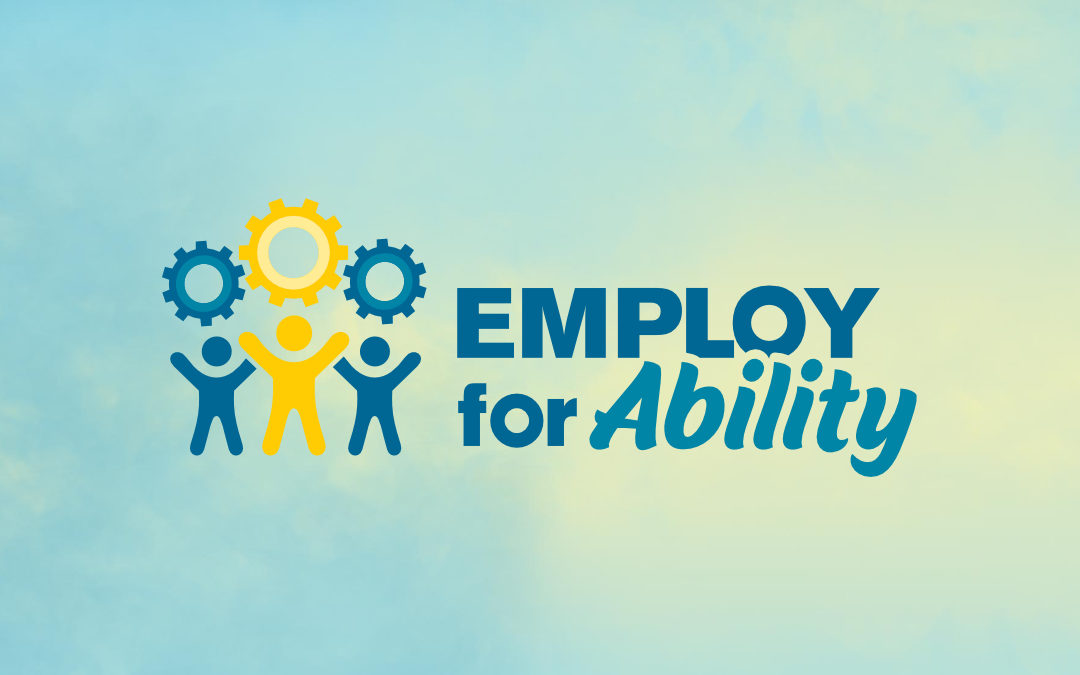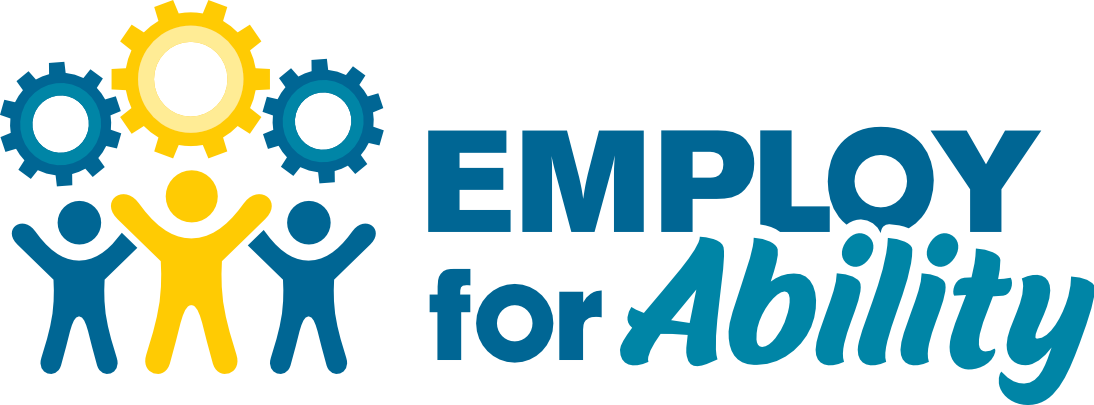
by David Smith | Aug 22, 2019 | Autism, Competitive advantage, Employment, Neurodiversity
Neurodiversity employment
Neurodiversity rates in Australia are growing as the number of young people receive a diagnosis through improved intervention and school inclusion programs. All young people will eventually finish school and transition into adulthood. These school leavers have the same goals, dreams and hopes about the future as we did. However, today school leavers with neurodiversity will experience the highest rates of unemployment compared to any other group of people with disabilities.
Employment rates for people with Autism
In Australia, according to the latest ABS statistics, 40.8% of people of working age (15-64) with autism participate in work (more than 2 hours per week). 53.4% of people with any other disability participate in work and 83.2% of people without a disability participate in work. It is harder to get work if you have autism or neurodiversity than any other disability.
While these stats show a very big problem, one statistic is improving. 35% of young people with autism on finishing school are entering tertiary education. The challenge is how do we improve the employment rate for people with autism and neurodiversity? The education system is improving the educational outcomes for people with autism. It is time for the employment sector to step up and help improve the employment outcomes for this cohort of people that is being left behind. As Dr Paul Shattuck found, as children with autism receive improved levels of support through intervention programs and inclusive education practices, they can achieve higher levels of academic achievement. ANU, UC and CIT in Canberra, as well as many other tertiary education institutions have created specialised support programs for their neurodiverse students. These tailored programs are improving the education outcomes for their students.

Interviews for someone with autism are a modern form of torture
Hiring based on an interview for cultural fit has led to the above statistics on under-employment for people with neurodiversity. Interviews measure a person’s communication and social skills, areas that someone with autism may have difficulty understanding. For someone with autism, an interview can cause debilitating anxiety and more often they will associate interviews with a negative perception of the organisation. Yet autistic people are good workers who are demonstrating amazing skills that an employer needs to be competitive in their markets. Recruitment programs that assess a candidates strengths and job fit, using testing, assessment centres and work experience are having vastly improved outcomes compared to traditional interview methods. With some simple modifications to employment methodologies, awareness training and leadership support, we can improve the employment rate of people with neurodiversity and provide competitive advantages to organisations.
Neurodiversity employment programs are working
Autism employment programs such as those provided by Specialisterne in Government departments (Department of Human Services, Australian Taxation Office, Department of Home Affairs, Australian Bureau of Statistics, Victorian Government) large corporates (Sun Pork, Westpac, IBM, SAP) and technology firms (Seeing Machines) demonstrate that employers are starting to understand that people with autism can be professionals and forge a career rather than working in roles below their education level. Employers need to understand that the pathway to employment for someone with neurodiversity is different to the traditional recruitment model.

Neurodiverse staff add great value
Neurodiversity employment programs need not be just about disability employment. All employees need to demonstrate value, and help the organisation achieves its goals. People with neurodiversity offer competitive advantages over neurotypical employees and they want to contribute to an organisations success by adding value. These include:
- reduced staff turnover
- improved productivity
- hiring neurodiverse staff improves existing staff morale and improves leadership skills
Individuals with neurodiversity often dislike change and may stay in the same role or organisation for longer periods than neurotypical employees if the work and environment are good. People with neurodiversity have a reputation for focus, attention to detail, accuracy and an ability to concentrate for longer periods of time than neurotypical workers. They often do not engage in office politics, banter or socialising, they just want to complete the task allocated. Examples now exist on the programs mentioned above where the neurodiverse staff are outperforming their neurotypical co-workers.
Neurotypical workers are becoming more aware of the social value of supporting people with autism.
Other benefits will be found to existing staff through feeling a sense of pride that their organisation has invested in hiring people with lower employment outcomes. With the incidence of autism diagnosis increasing, many families have a connection to autism. Programs to support neurodiverse workers may also support staff experiencing anxiety, depression and other neurological conditions. Leaders learn how to manage people’s personalities and different ways of thinking. Managers often performance manage someone who is different or difficult. With a small amount of training, managers can dramatically improve their leadership and management skills. Learning how to harness the problem-solving skills of neurodiverse workers and handle the direct way someone may speak or their poor social skills, makes good leadership and business sense. This is inclusion at its simplest level.
Embrace neurodiversity for competitive advantage
With some simple modifications to employment methodologies, awareness training and leadership support, we can improve the employment rate of people with neurodiversity and provide competitive advantages to organisations.
David Smith for Employ for Ability – Linkedin + Facebook
An autism and neurodiversity employment specialist and advocate.
Working for the last 20 years in the recruitment sector coaching and mentoring clients, candidates and staff to reach their potential.

by David Smith | Aug 18, 2019 | Autism
This week I commenced a defining step in my career to help build the Neurodiversity employment market; one placement at a time.
I did not realise it at the time, but my journey began when our third child, Ollie was born. Annie and I knew he was different to his older brother and sister, but when he was diagnosed with Autism at age 4, we went through the roller coaster of emotions all parents would experience. What does this mean for our son? Will he have a “normal” life? Will he get a job and reach his potential? What will this mean for our family?
As a family we have grown to understand Autism and to see the strengths Ollie has. His delightful happy attitude, his sense of equality and justice, his inability to tell a lie and his passion for following routines, yet still forgetting to empty the dishwasher highlight his diverse personality. He is a blessing and intrinsic part of my life and the reason I purposely started my Neurodiversity employment journey in 2016.
What is Neurodiversity ?
Neurodiversity is the concept, that neurological differences like Autism Spectrum Disorder (ASD) are part of the normal variation of the human population. It is a component of the social model of disability in comparison to a medical model where we need to find a cure. Autism is characterised by difficulty in social communication, social interaction and restricted or repetitive behaviours and interests. People with Autism are also hard working, loyal, direct, problem solvers, unique thinkers and honest to name a few qualities.
In October 2016, I was fortunate to attend the Oxford Advanced Management and Leadership program at Said Business School, Oxford University. I am very grateful for the opportunity my employer at the time, Peoplebank gave me to have 3 weeks in the UK to think and explore how purpose and leadership can intertwine to create a competitive advantage. Since then Peoplebank has been very supportive of the development of my purpose in the recruitment industry.
Under the guidance of Prof Lalit Johri who is the Director of the Oxford Advanced Management and Leadership Programme I explored competitive advantage in emerging markets and what my social purpose was. Together with my fellow course attendees, we examined case studies on leadership, and what made organisations great. My moment of clarity came when I was talking to a fellow course member, Dr Peter Lawrence who at the time was the CIO of the Australian Defence department. I mentioned I had a son who was on the Spectrum and I was interested in improving the employment rate of people who had Neurodiversity. He mentioned he was sponsoring a pilot program managed by HPE/DXC. I further learned of the assessment programs organisations like Specialisterne have developed internationally that remove the interview, resume and focus on the persons strengths.
There is a saying in the Autism community, if you have met one person with Autism, you have met one person with Autism. I knew about my son Ollie, but I needed a broader understanding of what evidence-based studies existed to improve the placement rate of people who are Neurodiverse. Over the coming months, I spoke to many different organisations who had either started programs or where interested in improving the employment rate of people on the Autism Spectrum. In 2018, I completed a Graduate Certificate in Autism Studies at Griffith University, to learn more about ASD. What I discovered was there is not a lot of research on this topic, and what does exist highlights that supported work programs are the best model to help people. To further grow my knowledge, I commenced a Research Masters in 2019 and my thesis is on Autism, Anxiety and the job search process. I aim to complete this in 2021.
We also know that people with Autism find job search and interviews to be problematic. In Australia 83% of people of working age participate in the workforce, 53% of people with a disability are employed, yet only 41% of people with Autism are employed (ABS, 2015). Employment is counted if you work 8 hours or more per week. It is harder to gain a job if you have autism than if you have an intellectual disability. The unemployment rate for people with a disability is over 31%, 6 times greater than people without a disability.
The typical job search process in Australia involves responding to job ads and if you match the brief, attending an interview. Interviews are a way to measure someone’s suitability for a role by measuring their responses to behavioural questions. It measures a person’s social and communication skills. Skills that people on the Autism spectrum have distinct disadvantages with.
In the words of Kurt Fearnley on The Drum on 10 May 2019, “people with a disability are not disabled because of their deficits, they are disabled because of the way their environment and other people treat them”. If you are in a wheel chair, we know you are disabled, and don’t put “steps” in your way. But with Autism, it is not as visible and we put steps in your way, by insisting on interviews and measuring you against your social and communication skills.
In Australia we have a wave of young people who have been given a diagnosis of Autism Spectrum Disorder who are about to finish school and enter the job market. We need to dramatically improve the placement rate of people with Autism and educate employers on the value they can obtain by hiring people who think differently and can solve problems that other people may not be able too. If we fail to do this not only are people with Autism destined to be long term unemployed, but for those with an NDIS plan, we are building their confidence and capability to enter the workforce only to tell them, you are not welcome.
Following my studies, placement of 46 Neurodiverse people and understanding of the emerging market, I decided to start my own business working with Canberra region employers and people with Neurodiversity to showcase the value Neurodiverse staff provide to organisations. This emerging market is one that will grow rapidly over the coming decades.
The sense of purpose I have experienced in placing people so far has been amazing. Seeing the joy in the faces of the Neurodiverse workers, the transformations in their families and the realisation from employers that what they considered disability employment is actually giving them a competitive advantage has been profound.
The journey has begun, I hope it is a rewarding and fulfilling one that helps a lot of people to reach their potential.
David Smith for Employ for Ability – Linkedin + Facebook
An autism and neurodiversity employment specialist and advocate.
Working for the last 20 years in the recruitment sector coaching and mentoring clients, candidates and staff to reach their potential.




